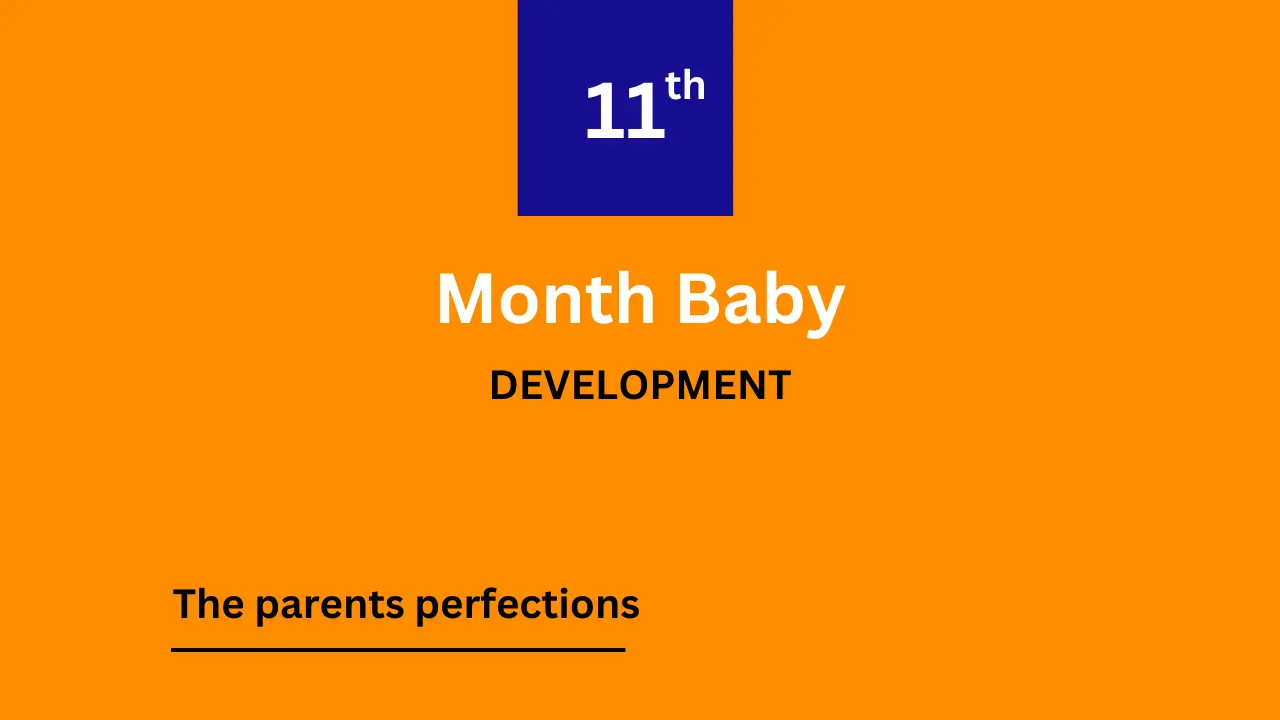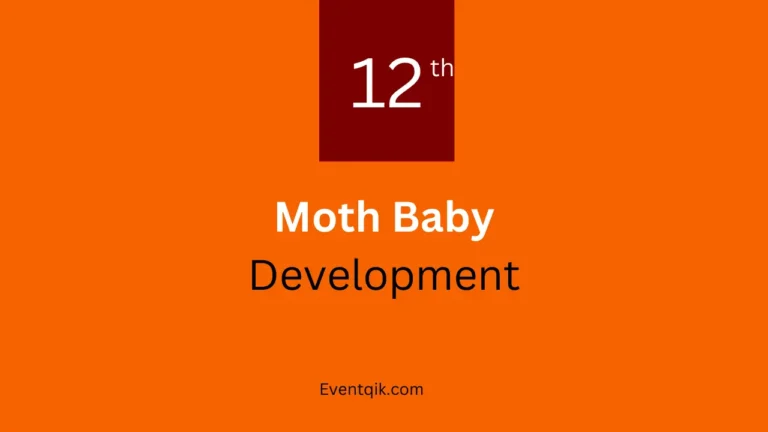Infant Development: 11-Month-Old Baby Care and Tips
I. 11-Month-Old Baby Care and Tips
As your little one approaches the 11-month mark, it’s a time of remarkable growth and discovery. Understanding the significant developmental milestones during this period is crucial for providing optimal care and creating a nurturing environment that fosters exploration and learning.
II. Physical Development:
Gross Motor Skills:
At 11 months, your baby is becoming more mobile and agile. They may surprise you with newfound abilities like rolling over, crawling, pulling to stand, and even cruising along furniture. These are exciting milestones that showcase their developing strength and coordination. Celebrate these achievements, and create a safe space for them to practice and explore.
Fine Motor Skills:
Tiny hands are becoming more adept at handling objects. Your little one is now capable of holding onto things, transferring objects from one hand to another, and perhaps even trying their hand at scribbling. Encourage their fine motor skills by offering age-appropriate toys and objects that spark their curiosity. This not only aids their physical development but also provides a sense of accomplishment.
Sensory Development:
Your baby is experiencing the world through all their senses. Touch, taste, sight, sound, and smell are avenues for exploration. Allow them to touch various textures, taste different foods (within safety guidelines), observe colorful and contrasting objects, listen to different sounds, and encounter various scents. This sensory stimulation is vital for their cognitive development.
III. Cognitive Development:
Key Cognitive Milestones:
Object permanence is a significant cognitive leap. Your baby is grasping the idea that things don’t vanish into thin air just because they are out of sight. This realization is a foundation for more complex cognitive processes later on. Cause and effect recognition is another milestone – they understand that their actions can lead to specific outcomes.
As they encounter everyday challenges, their budding problem-solving abilities come into play. It might be as simple as figuring out how to reach a favorite toy just out of reach. These small victories contribute to their growing confidence and independence. Memory development is also noticeable; they might remember where a particular toy is or recognize familiar faces.
Language Development:
Babbling is turning into more intentional communication. Your baby might be saying their first words like “mama” and “dada,” expressing their connection to the important people in their life. Understanding simple commands is another linguistic milestone. They may respond to cues like “wave bye-bye” or “give a high-five.” Respond enthusiastically when they communicate, reinforcing the importance of language in expressing needs and emotions.
In this phase, your baby is not just a developing individual; they are a little explorer, eager to understand the world around them. Be present during their discoveries, offering support and encouragement. Share in their joy when they achieve a new milestone, and comfort them if they find certain challenges a bit daunting.
IV. Social and Emotional Development:
Understanding the common emotional milestones and engaging in interactive play are key aspects of fostering a strong and secure bond with your little one.
Common Emotional Milestones:
1. Separation Anxiety:
At 11 months, it’s common for babies to start experiencing separation anxiety. This means that when you, the caregiver, leave their sight, they might become upset or anxious. This newfound awareness of your absence is a sign of the strong emotional bond they’ve developed with you. To ease separation anxiety, practice short separations and assure your baby that you’ll always return. A comforting tone and a reassuring smile can go a long way in soothing their concerns.
2. Stranger Anxiety:
Alongside separation anxiety, stranger anxiety is another emotional milestone. Your baby may become wary or anxious around unfamiliar faces. This is a natural instinct as they become more discerning about who is part of their familiar and safe circle. When introducing them to new people, allow your baby to observe from the safety of your arms. Give them time to adjust and build trust gradually.
Interactive Play:
1. Games like Peek-a-Boo:
Interactive play is not only enjoyable for your baby but also essential for their social and emotional development. Simple games like peek-a-boo can bring immense joy and laughter. The element of surprise when you hide and then reappear helps your baby understand the concept of object permanence, while the interaction strengthens the emotional connection between you and your little one.
2. Developing Attachments to Caregivers:
Your baby is forming strong attachments to the primary caregivers, recognizing you as a source of comfort and security. This is a beautiful bond that provides the foundation for their future relationships. Spend quality time engaging in activities together, such as reading books, singing songs, or playing with toys. Respond promptly to their needs, whether it’s a diaper change, a feeding, or a cuddle. These actions reinforce their sense of trust and help them feel emotionally secure.
During this phase, your baby is learning about emotions and relationships through observation and interaction. They are like emotional sponges, absorbing the cues and expressions of those around them. As a caregiver, your role is pivotal in modeling positive emotions and providing a safe emotional haven for your little one.
Practical Tips for Social and Emotional Development:
1. Be Responsive:
Respond promptly to your baby’s cues, whether they are expressing joy, discomfort, or curiosity. This responsiveness communicates that their emotions are acknowledged and validated.
2. Establish Routines:
Routines provide a sense of predictability and security for your baby. Consistent daily activities, such as feeding, playing, and bedtime, create a stable environment that promotes emotional well-being.
3. Encourage Exploration:
Support your baby in discovering their environment at their own speed. This helps nurture a feeling of autonomy and independence, positively influencing their emotional development.
4. Provide Comfort:
When your baby is upset, provide comfort through gentle touch, soothing words, and a calm demeanor. Your reassuring presence helps them regulate their emotions.
5. Celebrate Achievements:
Celebrate their milestones, no matter how small. Whether it’s taking their first steps or stacking a couple of blocks, acknowledging their achievements boosts their confidence and nurtures a positive emotional outlook.
V. Care and Tips:
Nutrition:
1. Providing a Balanced Diet:
As your little one approaches the 11-month mark, their nutritional needs are evolving. Ensure a balanced diet that includes a mix of milk, fruits, vegetables, grains, and protein sources. This variety supports their overall growth and development.
2. Introducing New Foods Gradually:
Experimenting with new foods is an exciting part of this stage. Introduce new items one at a time and observe how your baby responds. This not only helps in identifying any potential allergies but also allows them to explore different tastes and textures.
Sleep:
1. Typical Sleep Patterns:
Most 11-month-olds need around 11 hours of sleep at night, along with two naps during the day. However, individual variations are normal. Pay attention to your baby’s cues and establish a sleep routine that suits their needs.
2. Establishing a Consistent Sleep Schedule:
This could include activities like a warm bath, reading a short story, or singing a lullaby. A consistent sleep schedule contributes to better sleep quality.
Safety:
1. Babyproofing the Home:
At this stage, your baby is likely exploring every nook and cranny. Babyproofing the home is essential to create a safe environment. Cover electrical outlets, secure furniture to the wall, and ensure that small items that could pose a choking hazard are out of reach.
2. Never Leaving the Baby Unattended:
Vigilance is crucial. Even if your home is babyproofed, never leave your baby unattended, especially in potentially risky situations. Accidents can happen quickly, so staying present and attentive is a paramount aspect of caregiving.
Play and Stimulation:
1. Offering a Variety of Toys and Activities:
Engage your baby’s curiosity by providing a variety of age-appropriate toys. Simple toys like stacking cups, soft blocks, and textured items can provide sensory stimulation. Rotate toys to keep things interesting and support their cognitive development.
2. Reading Books, Singing Songs, and Engaging in Interactive Play:
Reading books aloud, singing songs, and interactive play are wonderful ways to bond with your baby. These activities not only enhance language development but also create joyful moments of connection. Your baby delights in the sound of your voice and the shared experience.
VI. Talking and Interacting with the Baby:
Communication Strategies:
1. Talking About Objects and Experiences:
Initiate an ongoing conversation with your baby. Share details about ordinary objects and experiences, like highlighting a beloved toy or discussing the food they’re enjoying. This not only enhances their vocabulary but also enriches their comprehension of the world surrounding them.
2. Responding to the Baby’s Vocalizations and Gestures:
Your baby is developing their own language through vocalizations and gestures. Respond to their attempts to communicate, whether it’s babbling, pointing, or waving. This reciprocal interaction strengthens the bond between you and your baby.
VII. Monitoring Development:
Knowing Milestones:
1. Understanding Expected Milestones for an 11-Month-Old:
Stay informed about the developmental milestones expected at this age. This knowledge serves as a guide, helping you recognize your baby’s progress and identify any areas that might need additional attention.
Regular Check-ups:
1. Periodic Checks with Healthcare Professionals:
Consistent appointments with healthcare professionals play a vital role. These regular check-ups offer a chance to talk about your baby’s growth, inquire about any uncertainties, and manage any concerns you might harbor. Additionally, these routine visits encompass essential aspects like vaccinations and evaluations of your baby’s growth.
2. Addressing Any Concerns Promptly:
Should you observe anything that gives rise to concern, do not hesitate to discuss it during your baby’s check-ups. Taking early action can have a meaningful impact on addressing developmental challenges. Rely on your parental instincts, and work closely with healthcare professionals to guarantee the optimal care for your baby.

VIII. Conclusion:
Emphasizing Importance:
1. The Significance of Nurturing Care and a Stimulating Environment:
The attention and environment you offer play a central role in molding your baby’s development. Providing nurturing care, brimming with love and attention, establishes a foundation for emotional well-being. An environment that encourages diverse experiences contributes to cognitive growth.
2. Celebrating the Stage:
During everyday routines and obstacles, pause for a moment to appreciate the special joys of this phase. Embrace and acknowledge the milestones, even the tiny ones, and delight in the straightforward joys of parenting an 11-month-old. The laughter, the initial attempts at communication, and the instances of discovery are precious moments to hold close.
IX. Additional Resources:
List of Resources:
1. Providing Further Information on Infant Development and Care:
Below are resources that can provide extra guidance on infant development and care. These may encompass trustworthy websites, books authored by child development experts, and community support groups. Keep in mind, that parenting is a collaborative journey, and these resources can serve as valuable companions.
In conclusion, the care and tips outlined in these terms encompass the holistic approach needed for your baby’s well-being. From nutrition and sleep to safety, play, and monitoring development, each aspect contributes to the nurturing environment your 11-month-old needs. As you navigate this phase, remember that your love, attention, and simple everyday interactions are powerful tools in fostering a healthy and happy baby.



